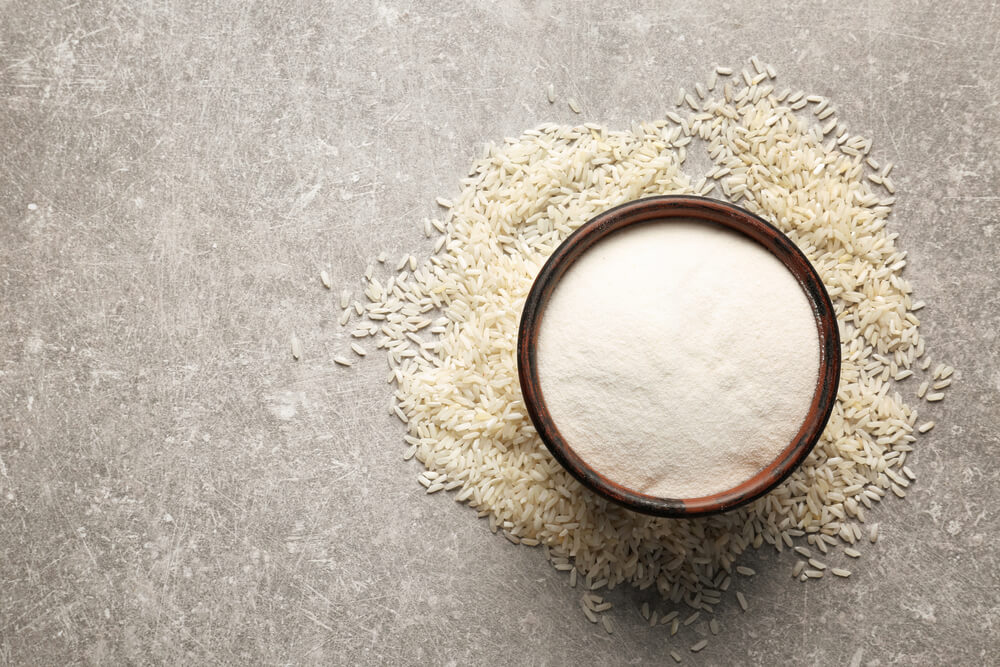
Looking for a new protein source? Try rice.
Depending on your diet, plant-based protein fulfills an important role: As a dairy-free, gluten-free energy source, rice is packed with B-vitamins, fiber, and antioxidants. As a protein source, rice is just as effective as whey protein—useful as both a standalone supplement and dietary cornerstone alike.
Protein-Rich Discoveries
Rice Protein Uncovered
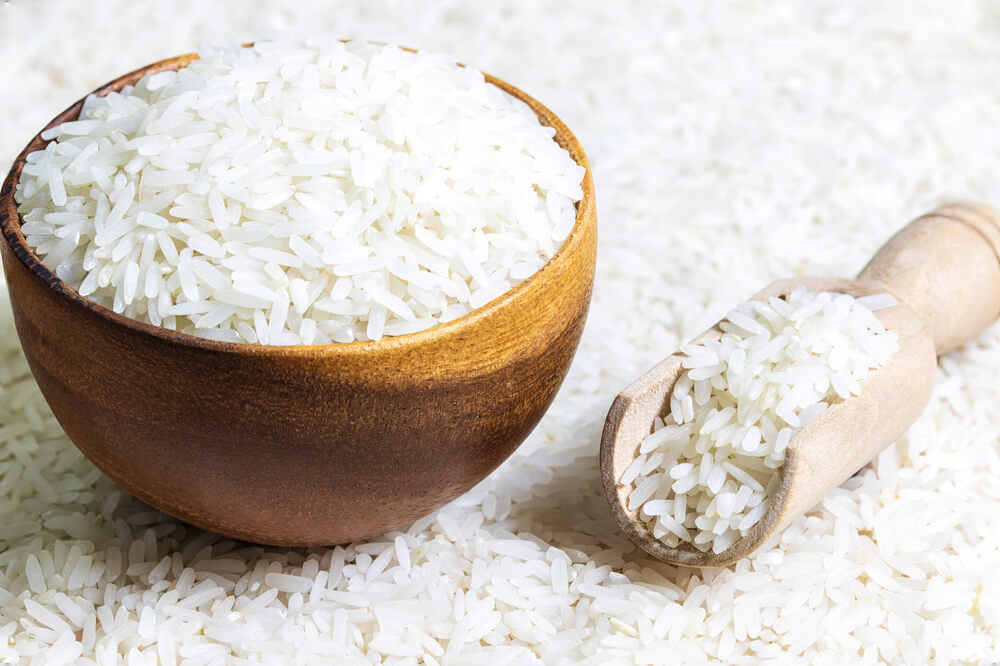
When we think about rice, carbohydrates usually come to mind first. Surprisingly, though, it stands alongside soy and pea protein as a power-packed trove of easily digestible nutrients.
High-quality protein sources lurk on every grocery store shelf—but finding them can be tricky.
It’s worth the hunt, however, because most alternative protein foods can double as reliable vitamin sources.
Hempseed, chia, amaranth, and cranberry are also part of this group, often blended into powder-based nutrition drinks as secondary protein. Much like rice, each of these protein-rich foods is as viable as whey—giving vegetarians, vegans, and fitness-minded dieters new ways to pursue several health goals at once.
Rice protein has some nutritional qualities, however, which aren’t shared among its plant-based counterparts.
For this reason, rice-based protein powder is quickly becoming a favorite ingredient among nutritionists keen on refining and redefining the healthy snacks we love.
So why not get involved with some awesome rice protein powder shakes, drinks, and post-workout snacks?
Where’d All The Carbs Go?
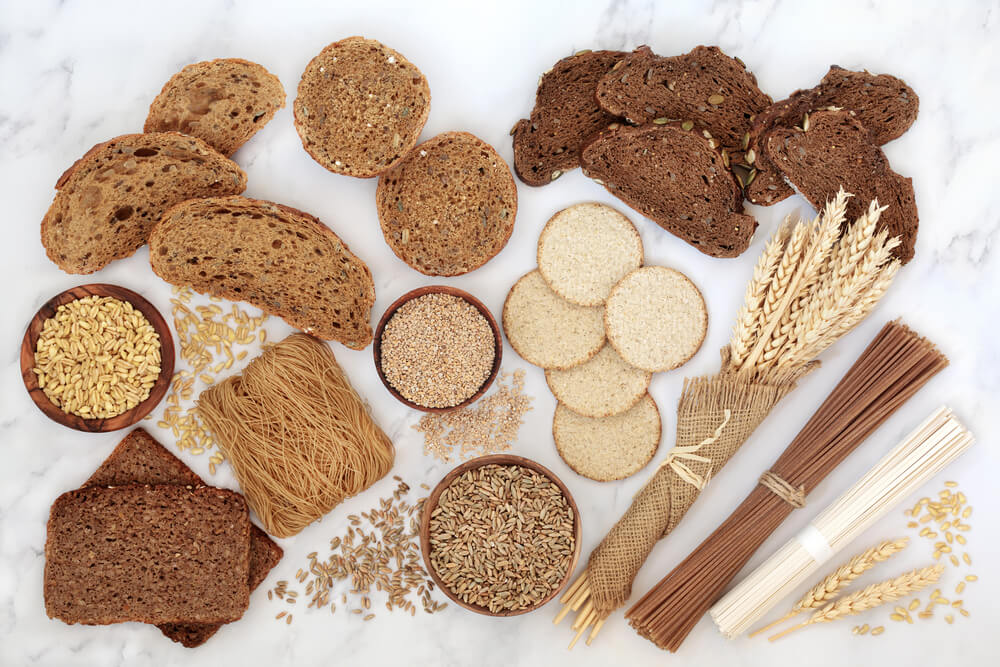
The first big benefit of rice protein is that it’s an incredibly flexible health ingredient. Despite its popularity as a leading carb source, rice can be organically ‘altered’ to be carb-free.
As a supplement ingredient, rice protein grains can be ground up and stripped of their starchy carbohydrates.
This is done by treating the rice with an enzyme, maintaining rice protein as a truly organic ingredient throughout the process. When used as a protein powder ingredient, rice protein is highly valued for its robust EAA makeup: Even though it’s plant-based it contains enough essential amino acids to be a decent muscle-builder.
The Benefits of Plant-Based Protein Diets
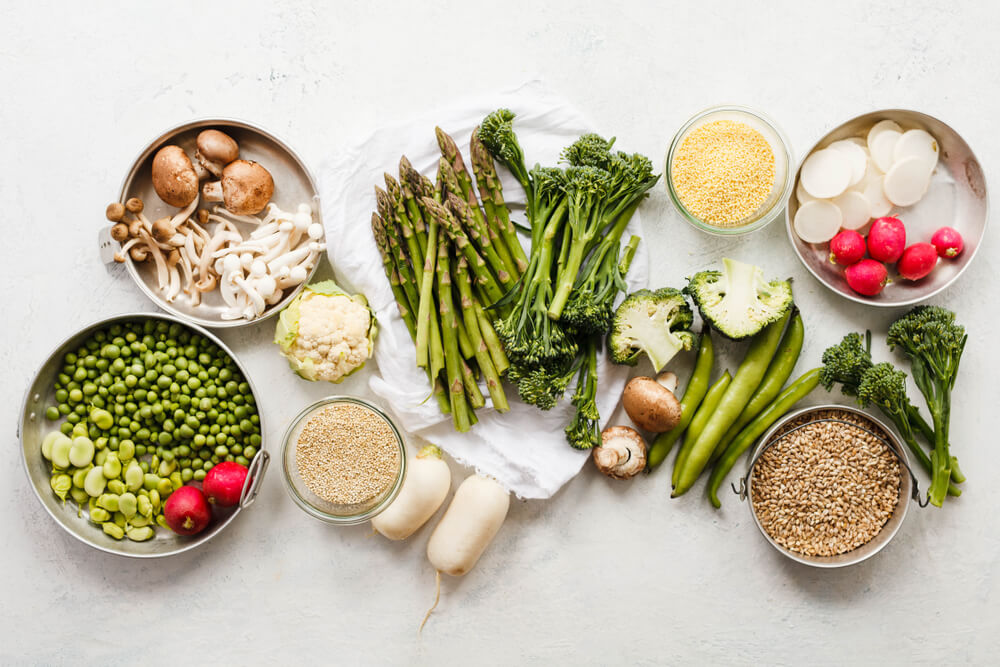
Traditional, animal-based proteins are pretty popular, but plant-based protein products are quickly catching up. They offer several benefits that animal-based proteins simply can’t provide, serving a unique role in the world of nutrition.
As Weight Loss Ingredients
A lot of plant-based proteins have a thermic effect, too, causing the body to expend extra energy during digestion. This thermic effect aids fat loss, which is why plant-based proteins are common components of weight-loss diets in general. This said, plant-based proteins packing many essential amino acids, like rice protein, are still viable for muscle-building regimens.
As Digestive Aids
Rice protein, in particular, doesn’t cause bloating like whey protein. It’s easy on the gastric system, and far more digestible than whey as well: Approximately 90 percent of rice protein is utilized by the body, making it one of the most bioavailable proteins on the market. Whey protein tends to create digestion issues—even for seasoned athletes.
Unfortunately, a protein that causes digestive distress isn’t absorbed very well.
Because rice protein has been stripped of its fiber, it’s also been stripped of its starch As such, it’s also a popular ingredient in whey-based protein powders to counterbalance any absorption loss—as low-starch ingredients are easy to absorb, in most cases.
As Leucine Sources
Leucine is the most important amino acid for building muscle—but it’s a difficult ingredient to incorporate in one’s diet. While leucine can be taken in the form of a supplement, it’s tough to absorb.
Inorganic meals, plant-based proteins can be a great source of leucine—and their digestibility helps us get the most out of our leucine consumption. Rice protein is a particularly good source for leucine—as it’s one of the most digestible plant proteins around.
As Medium-Digesting Proteins
Rice protein is considered to be a ‘medium-digesting’ type of protein—as it’s processed at a slower rate than whey protein. This doesn’t mean that rice protein is slow to digest in general, however, as whey protein absorbs far quicker than many others. Rice protein also digests quicker than casein protein—which, on today’s market, is the slowest protein to absorb.
When it comes to digestion speed, faster isn’t necessarily better.
Depending on one’s workout goals, health considerations and meal schedule, a protein’s digestion speed is simply a factor to be utilized for maximum absorption. Slowly digested proteins, for example, are ideally consumed before bedtime, as they’re absorbed best when the body is at rest—and when it isn’t digesting other food.
Protein which digests quickly, meanwhile, is a great snack supplement. It provides a small boost of energy both before and after exercise—fueling muscle recovery within the same timeframe.
The Benefits of Rice-Centric Protein Plans
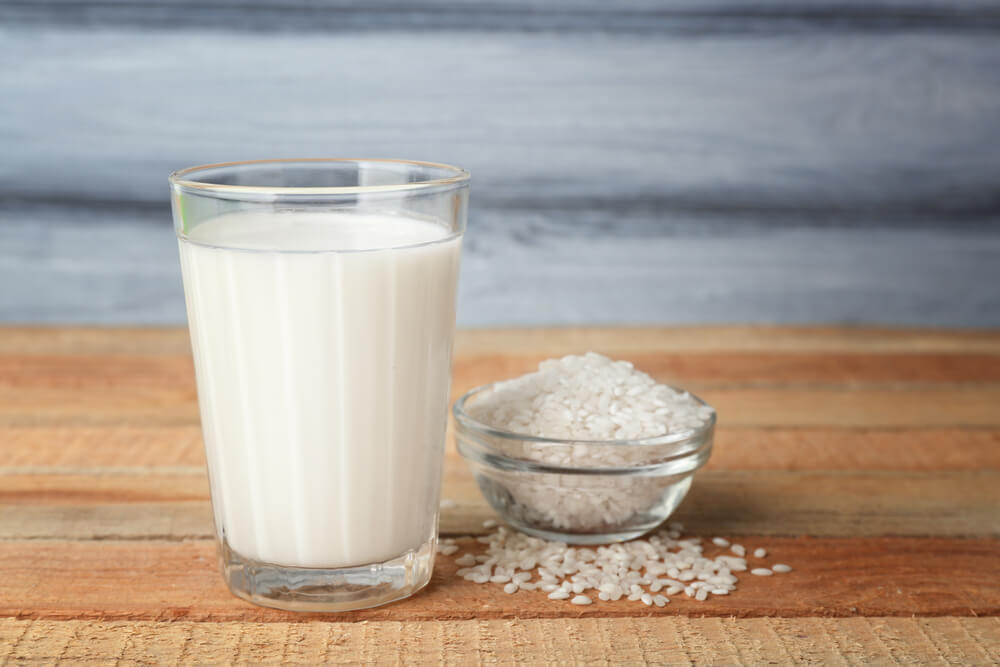
As we’ve seen, plant-based proteins offer a number of benefits—and some are exclusive to a green diet. We’ve also seen that rice tends to emphasize these benefits due to its high digestibility. Rice protein has additional benefits that aren’t commonly found, too, which can make it a ‘missing link’ supplement to nutrition-lovers everywhere.
It Balances Hormones
Rice’s anti-inflammatory effects aren’t powered by artificial refinement processes. Because of this, its thermal processes have a beneficial effect on hormone balance. Consuming an adequate amount of protein tends to stabilize the hormones in general—and plant-based proteins are just as effective as animal-based proteins when doing so.
Brown rice is especially hormone-healthy, as it contains phytoestrogens.
Phytoestrogens help regulate hormone balances, and they also synergize well with vitamin B—which is essential to the liver’s hormone metabolization process. Without enough vitamin B, the body’s estrogen and progesterone can quickly become Imbalanced.
It’s Hypo-Allergenic
One of the biggest benefits of rice protein is that it doesn’t contain allergens. Allergens are typically trouble-causers in plant-based diets, as they’re common across plant-based proteins. Whey and soy protein have allergens as well, commonly causing discomfort for those who consume it daily.
It isn’t rare to see someone make a direct pivot from whey protein to rice protein, for this reason. In many ways, rice protein can be considered to be a green alternative to whey protein—as its amino acid makeup is great for gaining muscle.
It’s Great for Recovery
Speaking of building muscle, rice protein is also great for fitness recovery.
The key component of muscle growth, endurance training, and fat loss is post-exercise recovery via healthy foods. Our muscles need a lot of essential amino acids to build and repair muscles—and even more to reach a fully recovered state. As we exercise harder, our protein and amino acid need only rise.
As a great source for amino acids, rice protein supplements are fantastic for post-exercise recovery diets.
To get the most out of your rice protein, try to consume it within 30 minutes after you exercise. This window of time is when your body’s catabolic state becomes an anabolic state—requiring an extra supply of branched-chain amino acids, essential amino acids, and protein.
The Best Rice Protein Sources
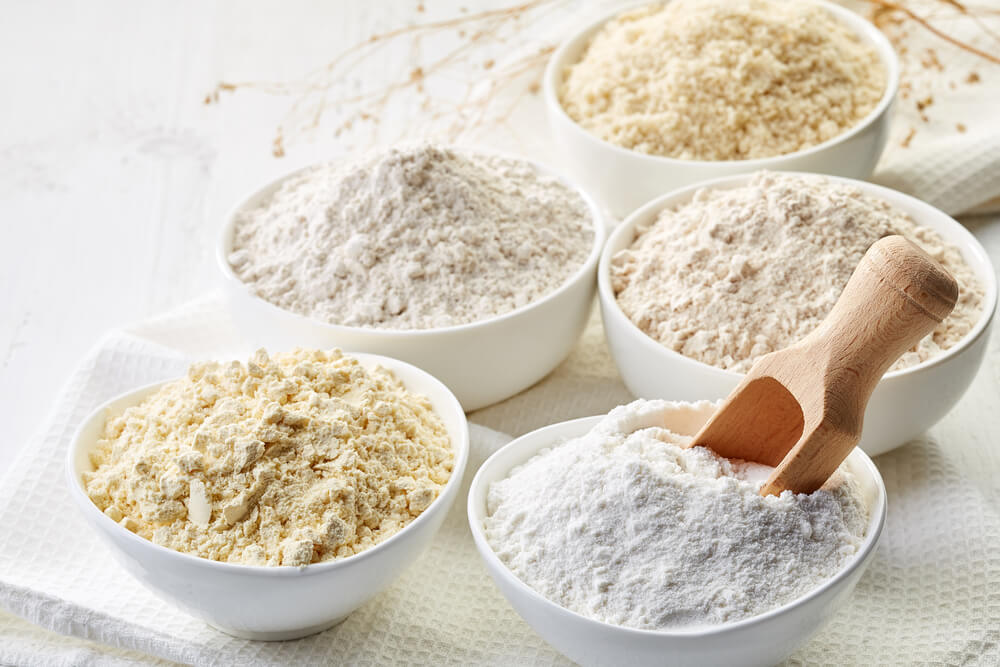
So, where can you find rice protein?
It isn’t as simple as consuming brown rice, as your body will prioritize the hefty dose of carbohydrates over its proteins. As such, your best bet is to find a good, rice-based protein powder.
Skipping the Toxins
Brown rice protein powder is the most convenient nutrient resource for vegetarians and vegans who abide by restrictive diets. It aids fat loss, skips the allergens, drops the toxins, and has few calories.
Even though some brown rice protein powders are processed, like whey-based protein powders, they contain enough protein in each serving to aid most fitness goals.
Easy to Mix
Brown rice protein powder is also more bioavailable than protein powder blends. This is particularly beneficial for those who frequently have difficulty digesting their protein supplements, maximizing every dose with plenty of nutrients that mix well in water.
This means that brown rice protein powders are awesome post-exercise recovery supplements. While rice protein is already digested easily, powders that distribute evenly in exercise drinks are processed much quicker than complex alternatives.
Comfortable
You needn’t compromise taste for nutrition.
Unfortunately, many fitness drinks don’t taste very well—and they can be gross to drink even during post-workout numbness. Most protein powders containing brown rice proteins benefit from rice’s neutral taste. It doesn’t’ have much of an undertone—and what undertone it does have one which tastes earthy, healthy, and smooth.
Compared to other protein powders, brown rice protein is far less chalky.
It’s also less gritty, making its texture flexible enough for any protein shake. As one of the most nutritious nutrient sources around, it’s also a familiar taste to most. Brown rice protein is commonly found in whey-based, and also soy-based, protein shakes.
There’s a good chance that your brown rice protein drink will taste similar to any whey-based drinks you’ve had in the past. If you decide to blend your brown rice protein into another protein powder mix, this effect will only get richer.
Getting the Most Out of Rice Protein
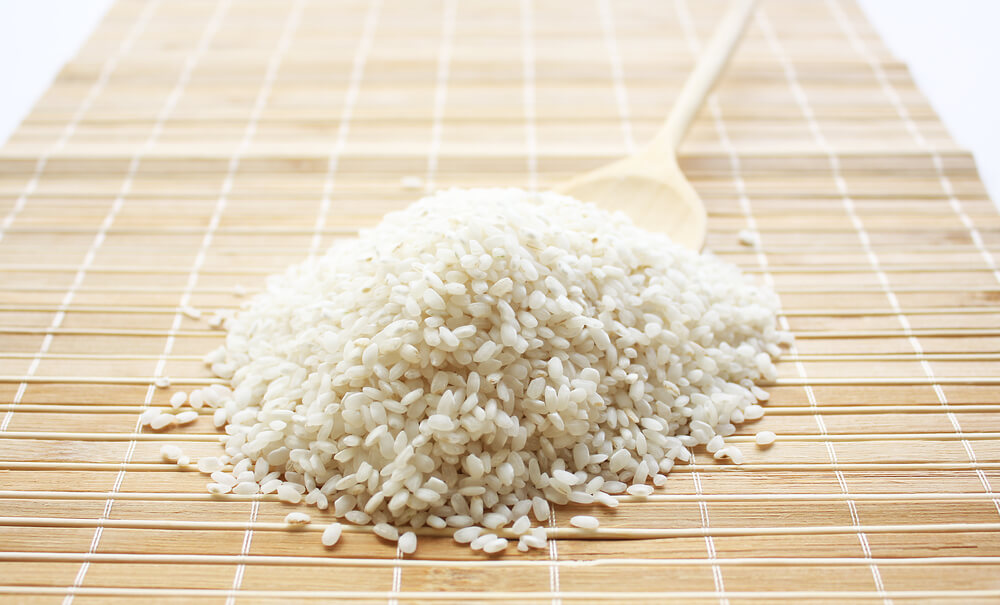
To maximize the benefits of brown rice proteins, be sure to have a well-established exercise schedule. Protein consumption is far more effective during the body’s post-workout state. Likewise, a body currently burning calories can benefit even more from the thermic effects brown rice proteins provide.
Conclusion
To stay strong, lean, and energized, we suggest consuming brown rice protein several times per day. Doing so will space out its digestion, further boosting it. If your schedule is tight, you can also get the most out of your brown rice protein by consuming it before bedtime.
It digests slower than whey protein, so it’s a good ‘long-term’ source of nutrition. Your body will still digest it while you’re asleep, so don’t worry: We all need nutrition, and nutrition which is effectively planned becomes incredibly optimized.
-Terry Asher
Terry Asher
Latest posts by Terry Asher (see all)
- Better Family – Product Review Liquid Daily 2 oz - Dec 16, 2024
- Post-Workout Recovery: The Key to Optimal Performance - Nov 25, 2024
- Pre-Workout Supplements – Everything You Need To Know - Nov 18, 2024






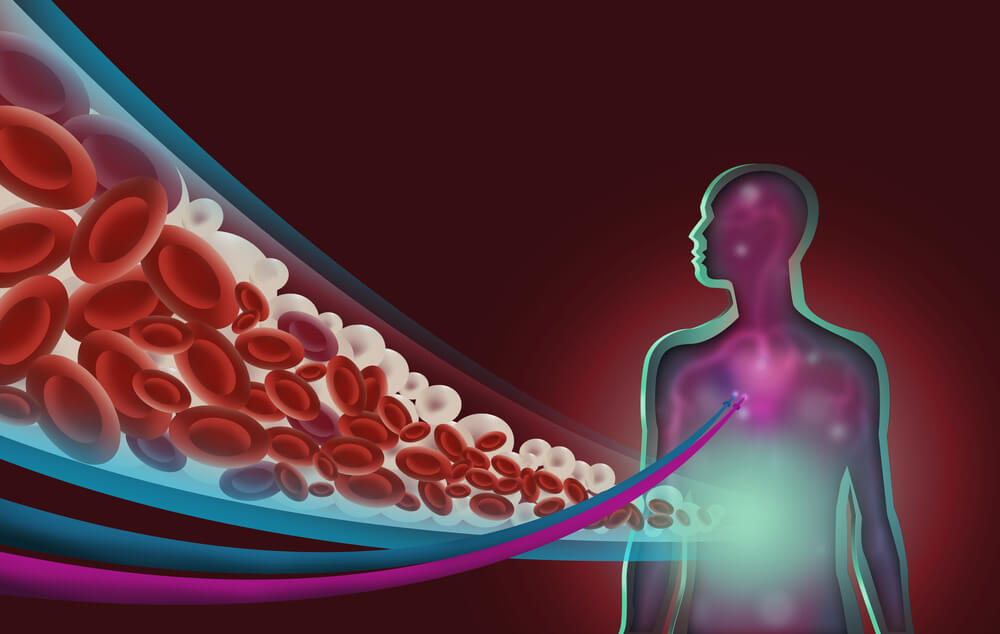





[…] This article was originally published by Gymjunkies.com. Read the original article here. […]
[…] Source link […]